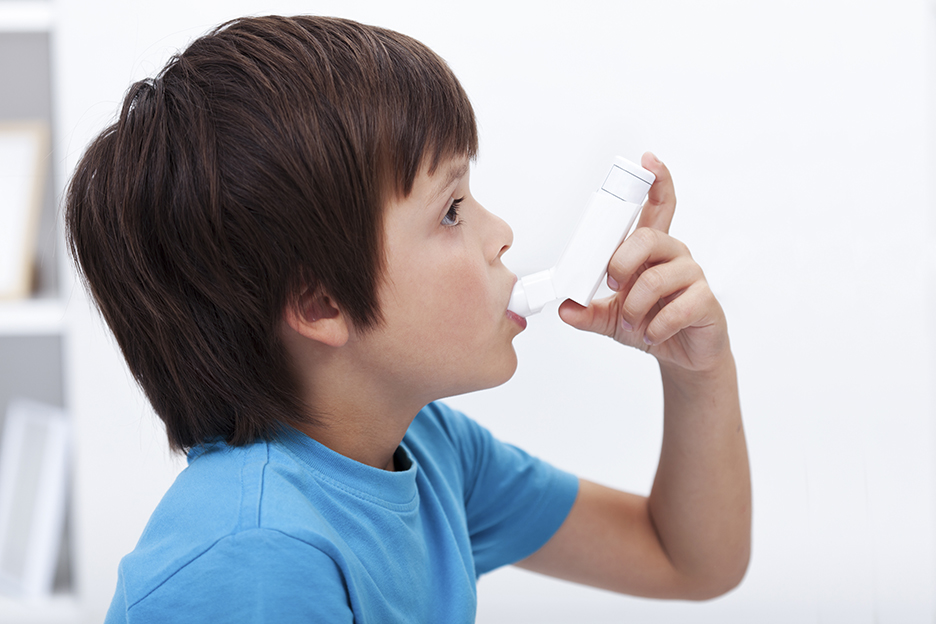Asthma can prevent you from breathing properly and carrying out certain daily activities without straining. Certain drugs are prescribed to reduce asthma symptoms. Do you know what these drugs are and how to use them at the right time to control the disease?

A two-pronged treatment
Breathing is vital. Having breathing problems can significantly affect your well-being. Asthma is a chronic respiratory disease, which means that it can’t be cured. However, many medications are available to control the disease and minimize its negative impacts.
Asthma is caused by an inflammation of the airways and a contraction of the muscles that surround them. Consequently, asthma medication targets both inflammation and contraction. The medication is divided into two major categories: control (or prevention) medication and emergency medication. They work together to eliminate the symptoms of asthma.
Control medication
Control medication is designed to provide long-term treatment for the causes of asthma. It acts on respiratory airways to keep them unobstructed by preventing secretions and inflammation. Its effect is not felt immediately. You have to use it every day for a few weeks to see an improvement in your symptoms. It’s important to note that control medication is not useful in the case of an asthma attack, because it takes a long time for such medication to begin to act.
The beneficial effects of control medication when taken properly are as follows:
- Decrease in asthma symptoms
- Lungs less vulnerable to asthma attacks
- Reduced use of emergency medication
- Increase in lung capacity
- Easier to carry out certain activities (for example, sports)
There are many types of control medication on the market. Depending on the gravity of the condition, your physician can prescribe a single drug or a combination of drugs. Medication options are:
- An inhaler (corticosteroid pump) reduces inflammation of the airways. This is the most effective treatment for controlling asthma. Examples in this class are fluticasone and budesonide.
- Long-acting bronchodilators can clear airways for several hours (about 12 hours), allowing air to pass more easily. Generally, a corticosteroid pump is also used whenever a bronchodilator is not enough to manage symptoms. Formoterol and salmeterol are examples of bronchodilators.
- Montelukast and zafirlukast are pills that are taken orally once a day. They can be prescribed alone in cases of light asthma or in combination with inhalers.
- Cortisone (prednisone or prednisolone) is often prescribed when the symptoms of asthma are temporarily not under control. These pills are prescribed for a short period to bring down inflammation. While cortisone is sometimes necessary, it does cause inconvenient side effects, such as digestive symptoms and insomnia.
- Theophylline is not used as much nowadays but remains an option for more severe cases of asthma.
Emergency medication
Contrary to control medication, emergency medication must be used only when you have difficulty breathing or when you experience severe asthma symptoms. They act rapidly (in just a few minutes) by opening the airways and allowing air to pass more freely and symptoms to subside. Always keep your emergency inhaler to hand. Salbutamol and terbutaline are examples of emergency medication that are often prescribed. Generally, if your asthma is under control, you shouldn’t have to use emergency medication more than 3 times a week, including when you engage in physical activities. However, you may need to use it more frequently if you have a respiratory infection, such as a cold or flu, or if you’re exposed to factors that trigger asthma.
Avoid the triggers of asthma
Asthma symptoms can be caused by multiple situations in your everyday life. These are called triggers. Changing some of your lifestyle habits may play a major role in reducing asthma symptoms. This is in addition to taking medication to manage your asthma. Pay close attention to the asthma triggers that increase the severity of your symptoms, and remember that triggers vary from person to person. The most common asthma triggers are:
- Physical exercise
- Cold air
- Strong odours (for example, cigarette smoke, cleaning products, certain perfumes, air sanitizers)
- Hot and humid air, especially when there is smog
- Strong emotions (for example, stress, intense sadness, anxiety, intense joy)
- Animal hair
- Mildew
- Bedbugs (in mattresses and pillows)
- Pollen
Several types of medication can help you live more comfortably with asthma and reduce its impact on your well-being and health. The closer you follow your treatment, the more beneficial it will be. Nowadays, asthma is a medical condition that can be treated effectively; unfortunately, many people with the disease neglect to take charge of their health. Your pharmacist can help you better understand how your medication works and develop strategies to preserve your respiratory health. You have so many things to do and achieve – don’t let asthma get in your way and slow you down!
Les personnes touchées par l'asthme doivent faire preuve de rigueur pour en limiter les conséquences sur leur bien-être et leur qualité de vie. Dans cet épisode du balado MaSanté sans tabous, Annie-Soleil et Isabelle, pharmacienne affiliée à Brunet, font le point sur l'asthme pour mieux comprendre les enjeux et les traitements de cette maladie pulmonaire qui touche plus de deux millions de Canadiens.
Pour plus d'informations sur le sujet, consultez notre dossier sur les maladies respiratoires.
Le balado est aussi disponible sur ces plateformes
